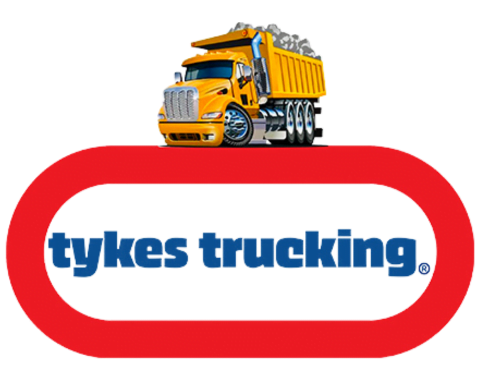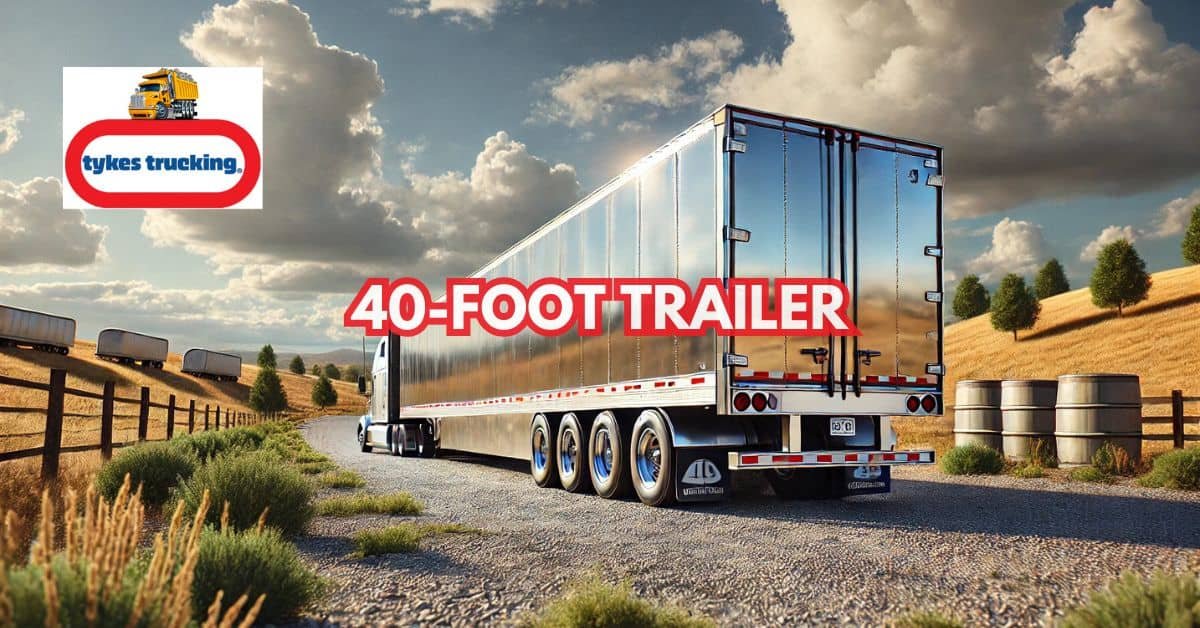Owning a 40-foot trailer comes with both benefits and responsibilities.
These trailers are often used for hauling large or heavy items, making them invaluable for businesses and personal projects alike.
However, they require a solid understanding of their operational needs to ensure safety and efficiency.
From maintenance to legal requirements, there are many factors to consider.
We’ll help you make informed decisions about trailer ownership and operation.
1. Understanding the Dimensions and Weight Limits of a 40-Foot Trailer
A 40-foot trailer is a large piece of equipment, with a typical length of 480 inches and a width of 8.5 feet.
It has a maximum gross weight limit, often reaching 30,000 pounds when fully loaded.
Knowing the trailer’s dimensions helps when planning routes, especially for tight spaces or bridges with height limits.
Exceeding the weight limit can lead to safety hazards, such as braking difficulties and tire blowouts.
Accurate measurement of cargo weight and distribution is crucial to comply with legal limits and maintain road safety.
2. Choosing the Right Type of 40-Foot Trailer for Your Needs
There are different types of 40-foot trailers, each designed for specific uses.
Flatbeds are great for hauling construction materials or large equipment that doesn’t need enclosure.
Enclosed trailers protect goods from weather and theft, while refrigerated models are perfect for perishable items.
Consider what you’ll be transporting to determine the best option for your purposes.
Choosing the right trailer type ensures your cargo is transported efficiently and securely.
🚚 Garbage Truck Services in Marikina: Ensuring a Clean and Sustainable City
3. Matching a 40-Foot Trailer with the Right Towing Vehicle
A towing vehicle must have the power and capability to handle the weight and size of a 40-foot trailer.
Heavy-duty trucks with high towing capacities, typically over 15,000 pounds, are often required.
The hitch system is another critical component, with fifth-wheel hitches providing the best stability for such large trailers.
Without a suitable towing vehicle, you risk poor handling, increased wear on the engine, and potential damage to the vehicle.
Ensuring compatibility between the trailer and towing vehicle is essential for a smooth and safe driving experience.
🚚 The Critical Role of Articulated Dump Truck Training in Enhancing Construction Site Safety
4. Legal Requirements and Regulations for Operating a 40-Foot Trailer
Operating a 40-foot trailer in the Philippines requires compliance with several laws and regulations.
Drivers must have a Professional Driver’s License, and some cases may require specific endorsements depending on the vehicle and cargo type.
Load limits on public roads, such as maximum axle weights, must be strictly observed to avoid penalties.
Overloaded or oversized trailers often require permits from the Land Transportation Office (LTO) or local government units.
Additionally, trailers must meet safety standards, including functional brake systems, proper lighting, and reflectors.
Following these regulations helps ensure road safety and prevents fines or vehicle impoundment.
🚚 Flatbed Truck Trailers: A Comprehensive Guide to the Essential Workhorse of the Road
5. Key Safety Features and Equipment for a 40-Foot Trailer
Safety features are crucial when operating a trailer of this size.
Brake systems, including electric or hydraulic brakes, are essential for stopping effectively under heavy loads.
Reflective tape and LED lights improve visibility, especially during nighttime or bad weather.
Safety chains and breakaway systems are vital backup measures to keep the trailer attached if the hitch fails.
Investing in these features can prevent accidents and reduce risks on the road.
🚚 How to Choose the Most Suitable Dump Truck for Junk Removal: Key Features and Benefits
6. Essential Maintenance Tips to Keep Your 40-Foot Trailer in Top Condition
Routine maintenance is key to keeping your trailer in good working order.
Tires should be inspected regularly for wear and proper inflation to avoid blowouts.
Brake systems and axles also require frequent checks to ensure they’re functioning properly.
Lubricating moving parts, such as hinges and the hitch, can prevent rust and ensure smooth operation.
A well-maintained trailer is not only safer but also more cost-effective over time.
🚚 Exploring the Versatility of the Dump Truck Box: Applications Beyond the Traditional Bed
7. Tips for Safe and Efficient Driving with a 40-Foot Trailer
Driving a 40-foot trailer requires patience and attention to detail.
Turns need to be wider to account for the trailer’s extended length, and braking distances should be increased due to the added weight.
Always check mirrors frequently to monitor your blind spots.
It’s also important to reduce speed when going downhill to maintain control and prevent overheating the brakes.
Proper driving habits help ensure safety for both the driver and other road users.
🚚 Why a 25-Ton Dump Truck is an Ideal Choice for Your Construction Projects
8. Maximizing Load and Cargo Space in Your 40-Foot Trailer
Efficiently using the space in your 40-foot trailer helps maximize its load capacity.
Start by distributing weight evenly across the trailer to maintain balance and avoid putting too much strain on the axles.
Use stacking techniques and secure your cargo with straps or nets to prevent shifting during transit.
If you’re hauling multiple types of goods, place heavier items at the bottom and lighter ones on top.
Proper loading not only protects your cargo but also improves fuel efficiency and handling.
🚚 Essential Tire Maintenance Tips for Dump Trucks in Heavy-Duty Hauling Applications
9. Understanding Insurance and Liability for Trailer Ownership
Insurance coverage is a crucial part of owning a 40-foot trailer.
Basic policies often cover damage to the trailer itself, but you may also need coverage for the cargo and liability protection.
If an accident occurs, liability insurance can cover damage to other vehicles and property.
In addition, theft and vandalism protection can be valuable if the trailer is left unattended for long periods.
Understanding your policy details ensures you’re financially protected in various scenarios.
🚚 Selecting the Optimal Dump Truck for Asphalt Transport: Important Features to Consider
10. Breaking Down the Costs of Owning and Operating a 40-Foot Trailer
Owning a 40-foot trailer comes with several ongoing costs beyond the initial purchase.
Maintenance expenses, such as tire replacement and brake repairs, can add up over time.
Fuel costs are another significant factor, as towing a heavy trailer greatly increases fuel consumption.
You’ll also need to account for insurance premiums, registration fees, and potential storage costs.
Planning for these expenses helps you manage your budget effectively and avoid financial surprises.
🚚 Trucking Services in Marikina City
💡 Conclusion
Owning a 40-foot trailer can offer great flexibility and utility, but it’s not a decision to take lightly.
Consider whether you’re prepared for the responsibilities, costs, and legal requirements that come with it.
If your needs align with the capabilities of a large trailer and you’re committed to maintaining it properly, it can be a valuable investment.
Weigh the benefits against the challenges to determine if this is the right choice for your situation.
With the right preparation, a 40-foot trailer can serve you well for years to come.
😉 Our Services
Looking for reliable hauling services?
Tykes Trucking Services specializes in delivering aggregates and handling all your hauling needs.
We ensure fast, efficient, and safe transport for every load, big or small.
Contact us today at 09175435019, via our Facebook page, or via the contact form on our website.
Trust Tykes Trucking Services to get the job done right!

